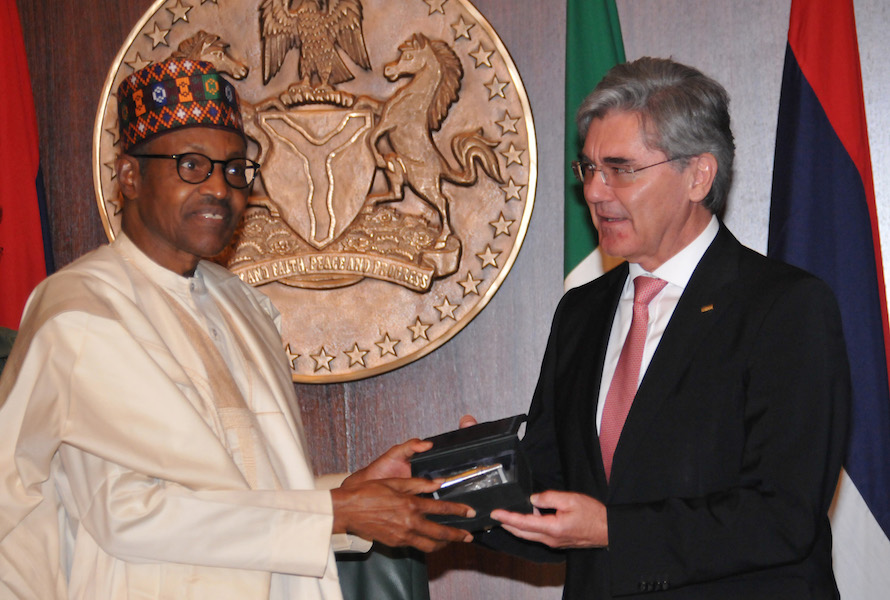There are no products in your shopping cart.
| 0 Items | £0.00 |


GERMAN engineering giant Siemens has published a damning indictment of the Nigerian power sector pointing out that it is grossly defective and will continue to require subsidies for new projects in the future.
Chronically ineffective, the Nigerian power sector is reeling from a host of problems include limited generation, poor transmission and problematic distribution. Nigeria requires at least 40,000MW of electricity but only generates 7,000MW of which it is only able to distribute 4,000MW, leading to frequent power cuts across country.
Due to the unreliability of supply, most Nigerians have to generate their own power through the use of private generators, creating environmental problems. At the moment, Nigeria is the world's largest importer of small and medium sized generators and the second largest importer of large generators behind Saudi Arabia.
To address the problem, President Muhammadu Buhari has entered into a supply deal with Siemens, to come and invest in the sector. Siemens has how now submitted its technical and commercial report on the sector, stating that it will continue to require subsidies and face harsh financing conditions for new projects.
According to the report dated May 9, Siemens revealed that there is insufficient collection of revenues, high technical and commercial losses and below optimal performance of existing power plants. It stated further that deficits in the power generation sector will result in multi-billion dollar economic losses.
Siemen's report explained that removing the aggregate technical and commercial collection’ (ATC&C) losses will result in positive earnings in the power generation sector after only a few years lead time. Further to electrifying Nigeria, it stated that ATC&C will lead to a sound business environment in the power generation sector that will benefit local companies as well as attract additional foreign investment into Nigeria.
According to the report, while 13 Gigatwatts (GW) of power generation capacity is available, only 3.4 GW is reaching final customers, with a peak operating capacity of 5.2 GW achieved in 2018. It described the existing assets as partly idle, saying they do not actively participate in the energy system, stating that removing severe bottlenecks within the transmission and distribution grid is necessary to allow for the free flow of electricity.
Responding to the report, Joy Ogaji, the executive secretary of the Association of Power Generation Association Companies, said that power goes to customers through grid dispatch, stating further that by end of April, the generation companies generated 8,500 megawatts but they can only push out what distribution companies can take. She described Siemens as a company that wants to sell it equipment through the Nigerian government and wished the company good luck.